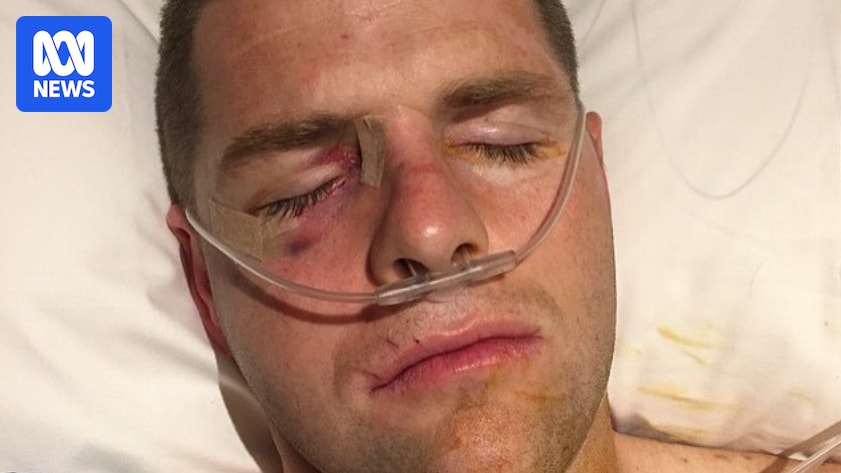
To compete at the highest level of the Australian Football League (AFL) demands sacrifice from a young age. The rewards are significant—a lucrative salary and the chance to live out the dream of countless Australian children. However, the specter of injury or being delisted is ever-present, and even the most successful players cannot extend their careers beyond their forties.
Recent events have cast a spotlight on the challenges faced by players transitioning out of professional football. The deaths of several former AFL stars have raised questions about the physical and mental health of those who leave the sport. Former players and their families have shared with the ABC the brutal realities of life after the AFL.
The Cost of Glory: Adam Hunter’s Story
Adam Hunter, a former premiership player for the West Coast Eagles, exemplifies the highs and lows of an AFL career. His parents recall the injuries he sustained as if they were their own. His stepfather, Rod Brown, vividly remembers Hunter being carried off the field, shaking and convulsing after a head injury. Despite retiring from the AFL due to injury, Hunter returned to play for South Bunbury in the South West Football League (SWFL), where he faced targeted aggression from opponents and spectators alike.
Brown describes the situation as a “tall poppy syndrome,” where people felt entitled to bring Hunter down because of his past success. “He just wanted to play football,” Brown said, emphasizing Hunter’s love for the game despite the risks. Tragically, Hunter’s career ended with a diagnosis of chronic traumatic encephalopathy (CTE), confirmed posthumously by a neuropathology report.
“The grand final he played in down here for South Bunbury, the first five minutes he was taken off the field with a gash over his eye that required about eight stitches.” — Rod Brown
Challenges Beyond the Field: Jason Cloke’s Experience
Jason Cloke, a former Collingwood defender, shares a similar tale of post-AFL life. After numerous concussions and hospitalizations, Cloke retired from amateur football. He recounts the hostility faced from both players and umpires, who seemed to relish the opportunity to target him because of his AFL background.
Cloke’s experiences highlight a broader issue within amateur leagues, where former professionals are often seen as fair game for aggression. Despite moving to a Masters League in Queensland, Cloke faced a violent incident that ultimately led him to quit playing altogether.
“They think you’re entitled to cop it because you’re an ex-AFL footballer.” — Jason Cloke
Efforts to Curb Aggression in Amateur Leagues
Samuel French, president of the Queensland Masters Football League, acknowledges the challenges faced by former AFL players. He emphasizes the league’s commitment to reducing on-field aggression and improving the culture within the sport. French notes a significant reduction in suspensions this year, attributing it to concerted efforts to address both player and spectator behavior.
French’s comments reflect a growing awareness of the need to protect players and create a more welcoming environment for those transitioning out of the AFL.
“We want ex-AFL players to come and play for fun. They shouldn’t have a target on them.” — Samuel French
Finding New Paths: Dyson Heppell’s Transition
Dyson Heppell, a recent AFL retiree, offers a contrasting perspective. Returning to lower leagues, Heppell has been met with warmth and respect, a testament to his positive reputation. However, he acknowledges the unique challenges of leaving the AFL, describing the transition as a lonely and difficult journey.
Heppell’s story underscores the importance of finding new passions and purposes after a sporting career. He has redirected his energy towards a clothing label that supports a young boy with a rare autoimmune disease, illustrating how former players can leverage their influence for positive change.
“There’s nothing that will ever replace the feeling of running out in front of 100,000 fans.” — Dyson Heppell
The experiences of Hunter, Cloke, and Heppell highlight the complex realities faced by AFL players after their careers end. While some find new beginnings, others struggle with the loss of identity and the physical toll of their playing days. As the AFL community continues to address these challenges, the stories of these athletes serve as a reminder of the sacrifices made in pursuit of the Australian dream.






